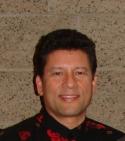
Biography:
Darryl E. Brock is pursuing his PhD in History at Fordham University, focusing on the international implications of Darwinism in Latin America. His Masters work at Claremont Graduate University explored Darwinism in China, an outgrowth of his leadership in Shanghai as a board member for the Irvine Sister City Foundation. Mr. Brock has presented on Darwinian evolution at such venues as UCLA and the AAAS, with publications on China appearing in Shanghais Nanxiang Pictorial Magazine and talks on China at Columbia and Emory Universities. An associate editor for Southern Historian and a broadly published science history writer, he is a biologist with B.S. and M.S. degrees from Auburn University and the University of South Florida. Mr. Brock has worked in government regulatory affairs for Monsanto and other agrochemical firms. There his expertise in environmental compliance was also complemented by his broad writing and editorships for in-house publications of the agrochemical industry. While in corporate America, Mr. Brock served on President Bushs Excellence in Science Teaching Awards NSF panel, led as liaison for the Greater St. Louis Science Fair, and worked on World Affairs Council projects. His past awards have included the Giselher Gust Marine Science Research Award, a Sigma Xi research grant, and an Earthwatch International research fellowship. In recent years, Mr. Brock has maintained a broad international interest, consulting and visiting with researchers in Chile and Costa Rica, while working extensively with the NGO Athgo International on projects and grants with the United Nations, USAID and various private-public partners.
Abstract:
Darwin and the Dragon: Evolution's Reception and Social Influence in China
While On the Origin of Species stormed the west in 1859, Darwinian scientific and social thought did not reach China in any significant way until the 1890s. At that time the nation stood in turmoil. The corrupt and failing Manchu Dynasty fueled egalitarian revolutionary aspirations, while a crisis of national confidence emerged with the Japanese military triumph over China in 1895. Darwinism, arriving that same year, intrigued Chinese intellectuals with knowledge of an English biologist transforming western society, catalyzing an intellectual revolution greater than that of Newton. Reeling under military defeat, the humiliation gave impetus to such intellectuals as Kang You-wei and future president Sun Yat-sen who looked to Darwin and Herbert Spencer as guides to help model China after the fitter western powers. In short, Darwinism helped catalyze revolution and establishment of the 1911 Republic.
Less than a decade later, the American educational theorist John Dewey arrived in China. The rising second generation of Chinese intellectualsthe May Fourth generation committed to Mr. Science and Mr. Democracyembraced Darwinism as a universal law of nature and society. Their new Confucius, in the person of Dewey, revealed that Darwinism frees the human imagination from the static and fixed, to changing, heterogeneous possibilities.
In later decades, Deng Xiaoping would commemorate the scientist even as his nation embraced capitalism. The challenge now before China is whether it will repeat the misapplication of Social Darwinism in its own Robber Baron era, or take a new path, truly learning from western experience.